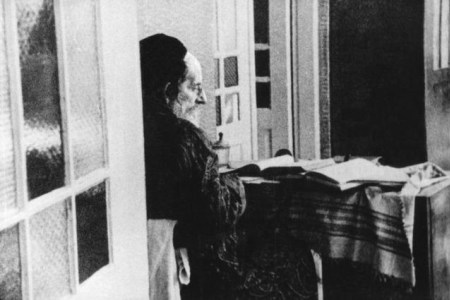Who Was Baal HaSulam?
Since Abraham and Moses there have been many brilliant Kabbalists through the generations, writing some of the fundamental books of Kabbalah, The Zohar and the Ari’s writings being the most important among them.
However, in the end, neither The Zohar nor the writings of the Ari were intended for a systematic study of the Kabbalah. Although the Kabbalah is indeed a science, before the 20th century there never was a true textbook. It is only in our days that a comprehensive and concise method suitable for all souls of this world was established. To fill in the gaps, Rabbi Yehuda Ashlag, the great Kabbalist who was born in Warsaw in 1885 and lived in Jerusalem from 1922 until his death in 1954, wrote a commentary on the Zohar and the texts of the Ari. Rabbi Ashlag, called Baal HaSulam (Master of the Ladder), evolved while writing the commentaries and published his principal work, The Study of the Ten Sefirot (Talmud Eser Sefirot), considered the predominant Kabbalah study book of our time.
This textbook consists of six volumes, containing more than two thousand pages. It includes everything that Kabbalists have written since the dawn of time: the writings of the first man, Abraham the Patriarch, Moses, Rabbi Shimon Bar-Yochai, and the Holy Ari. This book displays Kabbalah in a concise manner, fit for study. Thus, we have with us today everything needed to learn how creation was made, how it comes down to us, and how we can influence it from below, all the way to the highest world, to have the future we’d like to have.
Why Kabbalah Is Completely Opposite to Other Spiritual Teachings
Today The Zohar is incomprehensible without the Sulam commentary. Yet, the method of Baal HaSulam is often misunderstood. To those who have not achieved spiritual fulfillment, the book may be perceived as dry, schematic, and unemotional. It can read like an instruction manual rather than something that moves our heart. But this perception stems from a lack of understanding.
Continue reading “Introducing the Greatest Spiritual Teachers of the 20th Century and Beyond”
